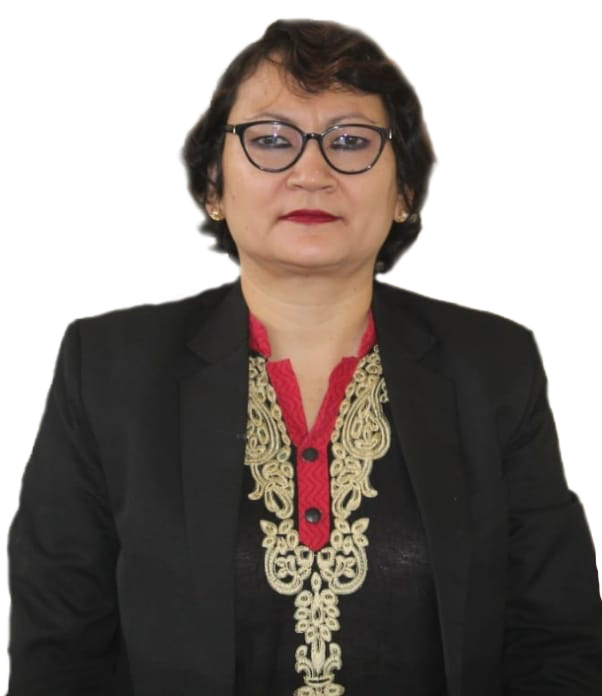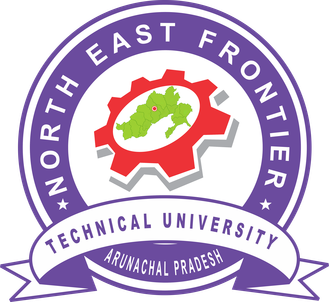Bachelor of Education
The two year B.Ed programme was started in the year 2017. The course curriculum of B.Ed has been framed as per the guidelines of NCTE. Attempts have been made while selecting and organizing different scholastic, co-scholastic and non-scholastic aspects of contents of curriculum. To integrate all these aspects to provide the needs of promoting awareness of various relevant issues such as gender, human values, human psychology, professional ethics, human rights with special emphasis on women rights, child’s right to education and equal opportunities of Education, etc. Course of Enhancing Professional Capacities (EPC), Art and Drama Education, Physical, Health and Yoga Education have been included for the development of personality of both physical and mental health of the trainees to ensure the development of global competency of communication skill due emphasis have been on the study of Languages and ITC Education. The two year B.Ed course structure has been designed for total of 1300 marks, dividing into 2 annuals of which 1st and 2nd year are of 700 and 600 marks total 1300 marks (1050 and 250 marks have been allotted for theoretical and practical aspects respectively).

Dr Annu Devi Angonjam
Dr Annu Devi Angonjam is heading the Faculty of Education as Principal with more than 20 years of experience in Education and Administration. An ardent researcher with good numbers of Books and articles in Journals of International repute. She has Doctoral Degree in Education along with M.A(Education),M.SC.(Zoology),B.Ed, M.Ed. & PGD International Teaching and Counseling.
PRINCIPAL MASSAGE
Bachelor of Education (B.Ed), makes the aspirants skilled in the principles of teaching and learning. It improves the trainees soft skills and helps them improve their communication skills so that they can understand the individual demand of the students and guide them properly. Students generally keep a watch on the teacher’s life. So, a teacher has to maintain a good set of manners and try to be a role model. This not only helps students adopt it but also improves their respect and regards to the teacher. Teachers have a role to play when it comes to inspiring and motivating their students. Teachers play the role of a mentor for learners, especially during formative years at school. Teachers find themselves in the middle of situations where they play the role of a mediator, within classrooms and outside of it. A teacher should be able to guide the students in finding the information required and helping them learn ways to search for information. Collaborating withfellow teachers and other stakeholders is an important role played by a teacher in society. A good teacher will be able to captivate the minds of the students and create an environment that encourages learning. As students see teachers as figures of wisdom and kindness, they find it easy to model their personality and behavior based on the teachers they admire. Teacher plays the role of a planner on a daily basis. From planning lessons and courses, and cross-curricular coordination, to help students schedule their daily student lives, a teacher always strives to be organized.
NEFTU B.Ed Programmed is one of the best quality institutions of Teacher Education in North East region as well as in India.
Lastly thanks God for long serving all my teaching, non teaching faculties and students.
Aims and Objectives of B.Ed Curriculum:
All the scholastics, co-scholarstic and non-scholastics aspects are included in the B.Ed curriculum and have relevancy to the regional, national and global developmental needs. This course is expected to provide to the different types of personal, social, national, global as well as the professional needs of the trainees. The programme aims to encourage the students with the practical knowledge of political, social as well as the environmental issues connecting with the society. It also takes up human values and social commitment by bringing the issues of justice, dignity of life, peace, harmony, liberty, human rights, diversity of religion, ethnicity, etc. The programme takes up social commitment by providing scope to the students to visit practical field in rural and urban areas, different institutions, museum, secretariat etc.The programme also offers courses comprising relevant issues of society, gender, human values etc in the curriculumn.The curriculum for two years B.Ed. programme is prepared on the model of the National Council for Teacher Education Guidelines (NCTE) 2014. In addition the Programme aims at conducting in-service training programme for teachers and administrators in order to update them on educational issues and findings to develop the required skills using modern information and technology and innovative practice. The Programme also includes organising awareness programmes in the neighbouring areas on education, health, adolescence health, sanitary, gender equality etc.
Syllabus/Course Content
Recognised by NCTE, ERC Bhubaneswar
Duration of Programme : 2 Years
Eligibility: Any Graduate with 50% marks (45% for SC/ST and 47% for OBC)
B.Ed First Year
B.Ed Second Year
B.Ed First Year
ANNUAL DISTRIBUTION OF THE COURSES
| Course No. | Course Name | Credit | External | Internal | Full Marks |
| Course 1 | Childhood and Growing Up | 6 | 70 | 30 | 100 |
| Course 2 | Contemporary India and Education | 6 | 70 | 30 | 100 |
| Course 3 | Learning and Teaching | 6 | 70 | 30 | 100 |
| Course 4 | Language across the Curriculum | 4 | 35 | 15 | 50 |
| Course 5 | Understanding Disciplines and Subjects | 3 | 35 | 15 | 50 |
| Course 6 | Gender School and Society | 3 | 35 | 15 | 50 |
| Course 7a | Pedagogy of a School Subject- Part I | 3 | 35 | 15 | 50 |
| Course 7b | Pedagogy of a School Subject- Part II | 3 | 35 | 15 | 50 |
| Course EPC 1 | Reading and Reflecting on Text | 3 | 35 | 15 | 50 |
| Course EPC 2 | Drama and Art in Education | 3 | 35 | 15 | 50 |
| Course EPC 3 | Critical Understanding of ICT | 3 | 35 | 15 | 50 |
| Total | 43 | 700 | |||
*Engagement with the Field: Tasks and Assignments for Courses 1-6 & 7a and 7b.
B.Ed Second Year
ANNUAL DISTRIBUTION OF THE COURSES
| Course No. | Course Name | Credit | External | Internal | Full Marks |
| Course 8 | Knowledge and Curriculum | 6 | 70 | 30 | 100 |
| Course 9 | Assessment for Learning | 6 | 70 | 30 | 100 |
| Course 10 | Creating an Inclusive School | 4 | 35 | 15 | 50 |
| Course 11 | I. Vocational/ Work EducationII. Health and Physical EducationIII. Peace EducationIV. Guidance and Counselling | 3 | 35 | 15 | 50 |
| Course EPC 4 | Understanding the Self | 3 | 35 | 15 | 50 |
| School Internship | 18 | 250 | 250 | ||
| Total | 40 | 600 | |||
*Engagement with the Field: Tasks and Assignments for Courses 8-10.

